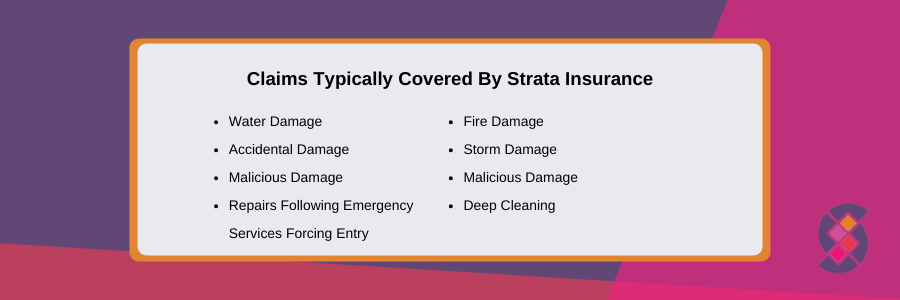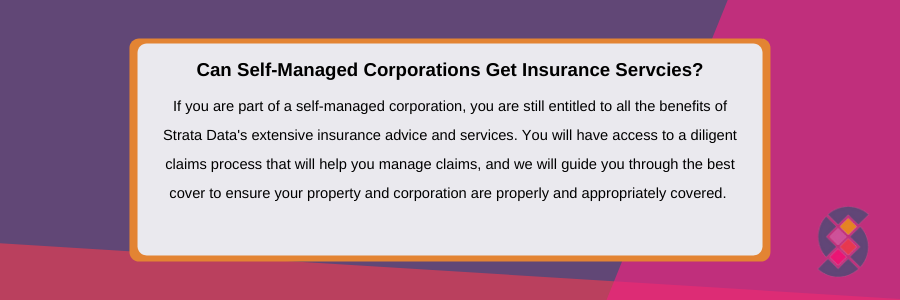What Is Strata Insurance?

There’s no doubt about it – from the outset, strata insurance seems complex. However, strata insurance and relevant policies do not have to be complicated.
Strata Insurance serves as a specialised safeguard for certain property types. When it comes to procuring strata insurance rather than opting for building insurance or landlords and contents insurance, there are significant disparities worth noting. In this article, we aim to precisely define the concept of strata insurance and elucidate the scope of its coverage.
What Is a Strata Insurance Policy?
So, what is residential strata insurance? Residential strata insurance, otherwise known as body corporate insurance, is a policy that covers residential strata or community title. The premium costs of strata insurance policies are typically shared between the strata units as part of their general strata fees.
Strata insurance is a legal requirement in properties of this kind, and the insurance must also provide public liability that covers individuals injured on common property. Every state and territory has their own unique legislative requirements for policies relating to strata insurance. The body corporate is responsible for insuring the property and ensuring that the policy meets the legislative requirements.
What Is Covered by Strata Insurance?
Strata insurance covers a wide range of issues that can occur on a property. What is and is not covered will depend on the nature of the policy taken out. However, most policies tend to cover some or all of the following:
- Damage caused to the shared property as defined on the title to the property.
- Some fixed parts of the unit, like air conditioning.
- Shared or common contents of the property that doesn’t belong to an owner.
- Temporary accommodation for an owner if the unit is damaged.
- Public liability.
- Fidelity cover.
In a nutshell, strata insurance is designed to cover all shared elements of a strata building or property.
The following list outlines commonly accepted strata insurance claims.

Things That Aren’t Covered by Strata Insurance
Strata insurance, much like any other insurance type, may come with coverage exclusions. In some instances, flooding might not be included in the policy. Keep in mind that strata insurance does not cover personal belongings, and any occupant will need a separate policy to protect their contents.
Who Manages Strata Insurance?
The strata insurance is typically managed by the strata manager that has been chosen to handle the policy and cost on behalf of all the owners. Strata manager, community manager, and body corporate manager are terms used interchangeably in South Australia.
It is also recommended that the Body Corporate apply to get the complex or apartment building valued at least once every three years to ensure the building is adequately covered. The valuation should coincide with annual reviews of the policy.
Beyond strata insurance, residents residing in strata buildings have the choice to purchase contents insurance. Similarly, landlords who own strata properties may consider obtaining landlord’s insurance.
How Strata Insurance Works
Now that we’ve covered just what strata insurance is, let’s discuss how it works when it’s time to implement a strata insurance policy.
1. Compare strata insurance policies between companies.
Strata Data can help your body corporate find the right cover for your strata building and ensure you are matched with a policy that best covers the unique nature of your property.
2. Select a policy
In Australia, strata insurance is a legal requirement, and South Australia has its own legislation distinct from other states. When you choose Strata Data, you can trust that your policy will provide comprehensive coverage for all the required areas.
3. Paying the premium
It is the responsibility of the strata manager to ensure that insurance payments are promptly made when they come due.
4. Claims are made to the insurance company in the event of theft, damage etc.
In this instance, it’s important to remember that insurance companies will not insure issues that arise from known defects. It is therefore vital to keep your building in good condition.
Strata Insurance Costs
Strata insurance premiums will be influenced by several factors, including:
- Your location: If you’re located in an area prone to flooding or other high-risk areas, the insurer may raise the premium.
- The purpose of the building: If the units are used for shorter stays like with Airbnb or similar, that might increase the cost compared to standard rental properties.
- Condition of the building: older buildings with existing defects will also drive the costs of the premiums up.
- The common property covered: More expensive shared features like swimming pools and gyms will raise costs.
- The general insurance market.
- Whether multiple quotes are obtained.
Differences Between Building Insurance, Contents Insurance, and Strata Insurance
The question “what is strata insurance?” can be puzzling, especially for unit owners tasked with differentiating between building insurance, contents insurance, and strata insurance.
While insurers and experts may use these terms interchangeably, they bear distinct significance concerning what each insurance policy covers.
Building Insurance
Building insurance refers to the cover of permanent structures, like a free-standing home. If you own strata property, you will usually not need to take out building insurance. However, if you own a community land division, then it is possible you will need to obtain your own separate building insurance.
Contents Insurance
Contents insurance refers to anything within the unit that is owned personally and not attached to the property. Furniture, clothes, artwork, and electronics are all covered by contents insurance. None of these are covered under strata insurance, so it is imperative you take this out individually to protect your personal belongings.

Claiming Against Strata Insurance
In the event of a claim, your standard procedure is to reach out to your strata manager as the first point of contact for claims initiation. There may be instances where the body corporate decides to cover the damages themselves instead of initiating an insurance claim.
Why Choose Strata Data
Strata Data is a family-founded business with over four decades of experience in every facet of body corporate management in South Australia. Our team is determined to simplify the residential and commercial strata experience for all our clients. We have over 1,200 corporations and 11,000 owners to whom we provide ongoing strata and community management.
If you have more questions relating to strata insurance, please feel free to contact our team for clarification. Insurance matters aren’t one-size-fits-all. You’ll retain complete control over your choice of coverage and policy, but we’ll ensure that each decision is well-informed. To learn more about how Strata Data can effectively manage your strata property or offer guidance on strata insurance, please reach out to us today at 08 8372 2787 or contact us online.
Please note: The legislation on holding insurance, and which entity is responsible for holding said insurance can vary. This article is a guide to this area of insurance only. Any advice in this article is general advice only and has been prepared without taking into account your objectives, financial situation or needs. Before making a decision to acquire any product(s) or to continue to hold any product we recommend that you consider whether it is appropriate for your circumstances.



